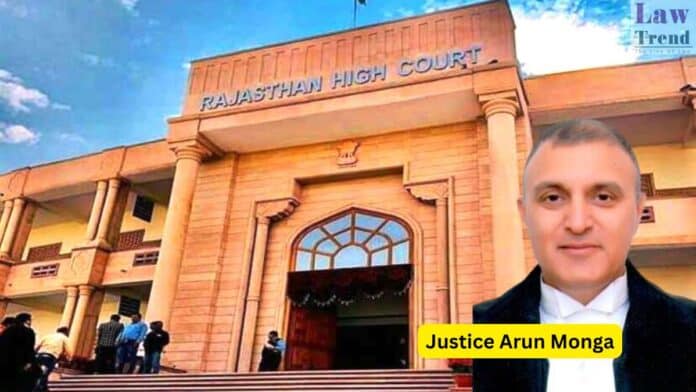The Rajasthan High Court, in an insightful decision, ruled that the police are within their rights to register a First Information Report (FIR) even if a private complaint regarding the same set of allegations is already under judicial consideration. Justice Arun Monga delivered this judgment while disposing of S.B. Criminal Miscellaneous Petition No. 4859/2024, which
To Read More Please Subscribe to VIP Membership for Unlimited Access to All the Articles, Download Available Copies of Judgments/Order, Acess to Central/State Bare Acts, Advertisement Free Content, Access to More than 4000 Legal Drafts( Readymade Editable Formats of Suits, Petitions, Writs, Legal Notices, Divorce Petitions, 138 Notices, Bail Applications etc.) in Hindi and English.




